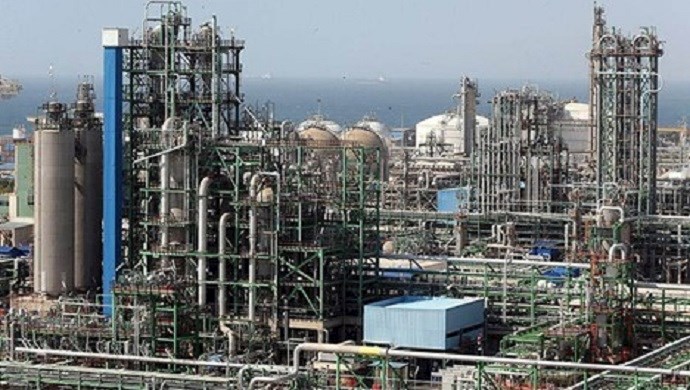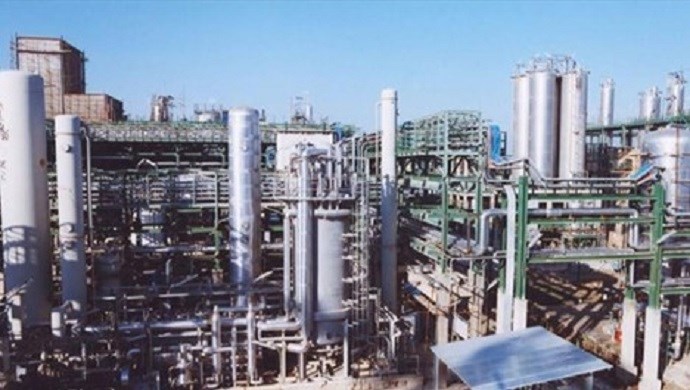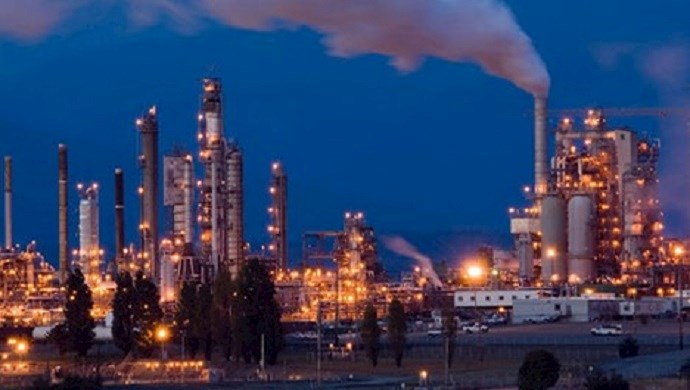Analysis by PMOI/MEK
Iran, January 1, 2021—In an oil-rich country like Iran, the petrochemical industry was founded to develop and complement the oil and gas industry chain. To help the industry grow in its early days, it was provided with discounts on basic material and profitable tariffs were adopted.
This policy helped to the flourishing of the petrochemical industry. But this policy had to be changed as soon as possible as the industry moves from an exporter of raw materials to an exporter of processed and high-quality products.
As the change was not in favor of the regime-linked owners and managers of the industry who were accustomed to get easy-earned profits and make windfalls from concessions they received, they did not allow the industry to develop on its natural course. At present, after nearly three decades of the petrochemical industry’s life in Iran, we are still witnessing that many crude and raw products are manufactured with the lowest added value or profit while many important production chains that create value and employment have been abandoned.
Continued rent-seeking on petrochemicals
In an interview with the state-run Fars News Agency on December 29, 2019, Ali Hosseini, an oil and gas expert said: “Continued rent-seeking activities on the input material needed for the gas petrochemical industry has hindered the development of the oil value chain. Natural gas is the right of all people, and we cannot hand over these resources to investors at a low price to manufacture products and export it so as they earn a significant income and don’t even pay taxes.”
The outcome of this rent-seeking is a capacity to produce methanol by 7 to 8 million tons, but most of it goes for exports and internal consumption is very low. Ten percent of the country’s total natural gas production needs to be used as input to produce 15 million tons of methanol. However, the price of methanol in the world is declining and with it the profitability of domestic units. This issue has other consequences, including the destruction of other chains of the industry.
On January 6, 2020, a petrochemical industry expert told the state-run Mehr News Agency: “One of the main reasons for the low input cost of the country’s methanol, urea and ammonia petrochemical units is the cheap input price of natural gas, which is very low compared to the export price of natural gas. In other words, the rent of cheap natural gas feed has ruined other chains of the petrochemical industry.”
$12 billion worth of petrochemical products sold in crude

Iran’s petrochemical industry
A member of the regime’s Union of Exporters of Oil, Natural Gas and Petrochemical Products said that the petrochemical industry’s export is worth nearly $12 billion. But if these products were placed in their own complementary production chain and their final product be exported rather than being sold raw, it could generate up to $50 billion in revenue.
According to a December 20 report by the Eskenas website, Saeed Zakai, a member of the Board of Directors of the National Association of Polymer Industries of Iran, said: “We produce more than 6.5 million tons of polymer products and the total volume of polymer and chemical products in the country is about 12 million tons per year, most of which are exported in raw form. Selling these raw materials earn nearly $12 billion though, if these materials were processed and turned into final products their value could double or more, and along with this value creation, it would create employment opportunities.”
Petrochemical authorities are a disaster for the plastics industry
The real owners and behind-the-scenes-managers of the petrochemical industry are elements of the Revolutionary Guards (IRGC) and agents of the office of regime supreme leader Ali Khamenei. They operate through large cartels, covering institutions and banking networks that finally receive windfall gains through petrochemical rents. Studying the domestic activities of these looting gangs shows that here—as in other economic sectors—regime agents do their best to destroy domestic production and contribute to the downfall of business owners who are not linked to the regime.
On December 20, Asr-e Eqtesad website quoted the head of the Union of Manufacturers and Sellers of Nylon, Plastic, Linoleum and Melamine Products in Tehran as saying: “Petrochemicals are causing the same disaster to the plastics industry through the poor supply and pricing of raw materials that car manufacturers inflict on people. Although 90 percent of the raw materials of the plastic industry are domestic products, but nowadays, we are witnessing a 3-4 times rise in these products’ prices in the market.
“According to guilds and activists of petrochemical subindustries, the current high price of plastics and nylon is due to the petrochemicals’ weak performance and management. Although, the purpose of establishing petrochemical units is to help all sectors of industry and to create employment opportunities, nowadays, we are witnessing that subindustries are facing many problems in procuring raw materials and importing some machineries though petrochemicals are making more and more profits. Supplying and pricing policies of the petrochemical complexes cause uncertainty, unemployment and losses in subindustries, and that is why nobody desire to enter in this industry.”
This corrupt and chaotic situation put plastic manufacturers in a rough condition. The disruptions in supplying raw materials and the devastating pricing policies have resulted in close to 30-40 percent of manufacturers shutting down their units. Petrochemicals supply raw materials in such a way that creates false competition causes prices to rise. Plastic producers even agreed to be allowed to import raw materials, which cost them much less than the price offered by state-backed petrochemical owners. To make the case more understandable, the situation is compared by the devastating situation in the car market and it is said that the way petrochemicals treat with plastic and polymer industry is exactly like how car manufacturers handle the costumers.
Petrochemical owners profit of the losses of smaller factories

Iran’s petrochemical industry
The plastics manufacturers have also uncovered the various deceptive measures the regime-linked business owners use to gain windfall profits though the petrochemical companies. But despite these revelations, the businesses act with full impunity because they are under the protection of the IRGC.
According to the December 20 Asr-e Eqtesad report, the head of the Union of the Plastics Manufacturers and Sellers said: “Sometimes, [the petrochemical power wielders] announce a high price and consequently customers do not buy. Afterwards, they quickly announce that supply is declining or spread rumors that production is stopped. That is how they lay the groundwork for middlemen, corrupt opportunists, who collect raw materials and create a false demand, and two weeks later prices rise.”
The truth is that under the mullahs’ rule, Iran’s economy is totally corrupted. Even former regime president Ali Akbar Hashemi Rafsanjani once said what is evident is only the tip of the iceberg in the sea of corruption. In the mullahs’ regime the looting and plundering are inherent and institutional, and their corruption shows itself in every sector of the economy.





